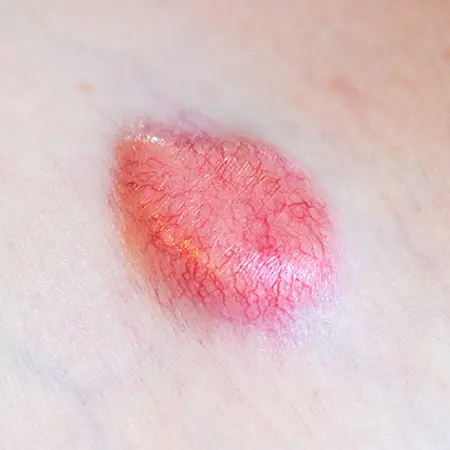Authored by Dr. Brian Koffman
Sadly, the world lost a bon vivant and great songster, Jimmy Buffet, who passed from a rare and aggressive skin cancer, Merkel Cell Carcinoma (MCC), that tends to spread fast and has a nasty propensity to reoccur.
It’s easy to miss. It usually looks like a small benign cyst, pink or sometimes bluish.

Too often, it’s misdiagnosed initially and then caught too late when it has already spread and become deadly.
Clinical features that suggest the need for a biopsy include a rapidly growing, non-tender lesion on sun-exposed skin in an older person with lightly colored skin, particularly if there is long-term immune suppression, like all of us with chronic lymphocytic leukemia or CLL. Better safe than sorry.
The vowels’ acronym AEIOU might help you remember when to be worried and see a dermatologist.
- Asymptomatic in 88%
- Expanding rapidly (significant growth in less than three months) in 63%
- Immune suppression (like chronic lymphocytic leukemia and others such as HIV or solid organ transplant recipients) in 8%
- Older than 50 years age in 90%- peaks in the mid-70s
- Ultraviolet (UV)-exposed area in an individual with lightly pigmented skin in 81%
It is more common in men and those with lightly pigmented skin.
Forty-three percent of cases occur in the head and neck, and those carry the worst prognosis.
It is much more common in those with chronic lymphocytic leukemia. In fact, in one analysis, it was 16 times more common in those with CLL than in the general population. And it goes both ways. Those with MCC may be close to 18 times more likely than the average Joe to develop CLL. I believe the Mayor of Margaritaville had both MCC and an unspecified lymphoma. Was it CLL?
So, sunscreen up, wear protective clothing, and most importantly, see a dermatologist at least once a year.
It’s okay to party and enjoy the barefoot beach lifestyle but take care of your body’s biggest organ, your skin. By some measure, half of all CLL / SLL patients will get skin cancer at some time.
Stay strong. We are all in this together.
Dr. Brian Koffman

















